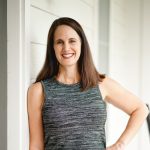By Melanie S. Meyer, originally published in the August, 2021 issue of Equity & Access
District U-46 is a large, urban school system located about 45 miles northwest of downtown Chicago. This school district covers 90 square miles across three Illinois counties and serves over 37,000 culturally, linguistically, and economically diverse students, 61 percent of whom qualify for federal free and reduced-price meal programs. However, when April Wells, the district’s gifted coordinator, describes U-46, she notes, “While our demographics certainly can paint a picture of the challenges large districts face, some of the intangible things that are not captured in those numbers are the warmth and the engagement of our students, their families, and the members of our community.”
In 2012, Wells began the job of reimagining gifted and talented programming for students in District U-46, a task for which she was uniquely suited. Her background in industrial and organizational psychology, her experiences as a U-46 student, and her desire to create equitable access to gifted programming all prepared her to step into the role of coordinator at a critical time for the school district. She explained, “We were part of a federal discrimination lawsuit, so that was certainly an impetus to redesign programming. Moving beyond that though, we understood that we needed to dismantle barriers and disrupt the systems that were perpetuating inequities to make sure that all students in every building had access to academic talent development programming.”
In the redesign of gifted and talented services, Wells and her team of stakeholders in District U-46 identified barriers to equity and excellence and focused on local solutions. Traditionally, the school system identified students for gifted programming and then supported their academic growth through placement in gifted classes. Wells explained, “We realize that there are certain disparities that occur in students’ opportunities to learn before they come to school.” This understanding prompted U-46 to shift to a system where they first support student academic growth and then identify students who need more advanced learning opportunities than those provided in the regular classroom. Historically, district-wide gifted and talented screening assessments
were held on Saturdays on a designated campus. This scheduling created barriers for some families who worked on weekends or could not find transportation to the testing site, so screening for gifted programs shifted to students’ home campuses on regularly scheduled school days.
Now, on elementary campuses in U-46, the Access to Inquiry and Meaning (AIM) talent development program brings critical thinking enrichment lessons taught by gifted specialists into all second and third grade classrooms. Teachers are trained to observe their students as they experience the enriched content and to spot students who could benefit from advanced learning opportunities. These ongoing talent development lessons support student achievement by frontloading the skills and content they will need to thrive in gifted and talented programming in fourth grade and beyond. All students in third grade are screened for gifted services using building-level local norms and the highest performing students on each campus are identified for placement beginning in fourth grade. Fourth, fifth, and sixth grade students who are identified for gifted and talented services participate in the Inquiry and Gifted Network for Ingenuity, Talent, and Exploration (IGNITE) program or the dual-language IGNITE program for reading and math. All sixth grade students not already in the program also undergo universal screening for placement in gifted and talented math, reading, social studies, and science courses in middle school. These and other strategies are described in Wells’ new book, Achieving Equity: Dismantling Barriers and Tapping Potential.
The systems U-46 created in the redesign process leverage several research-based best practices for reducing excellence gaps, including intentionally frontloading content and skills, universal screening with local norms, and systematically expanding student access to advanced learning opportunities (Plucker & Peters, 2016; Plucker et al., 2017). In addition, professional learning plays a pivotal role in advancing the goals of equity and excellence for students in the district. All teachers and administrators are trained to recognize and address implicit bias and to promote anti-racist learning environments. School personnel also learn to spot talent in students from all cultural, linguistic, and economic backgrounds. April Wells identifies one of her roles as gifted
coordinator as “a bridge to support families who care for their kids and have aspirations for their futures, but don’t always have an understanding of policies or how to navigate the system to advocate for what their children need educationally.” As a result, professional learning does not stop with school faculty and staff. The district has strong ties to campus and district parent associations and has partnered with Northwestern University’s Center for Talent Development to provide learning opportunities for families and enrichment opportunities for students.
Under the guidance of April Wells, District U-46 in Illinois has prioritized equity and excellence by identifying and eliminating barriers that prevent students from accessing gifted and talented programming. Wells looks toward the future with optimism and says, “We are excited about this work and we know that underrepresentation and inequitable access do not have to go on in perpetuity, so we have made the decision to do something about it.”
Melanie S. Meyer is a Postdoctoral Research Fellow at Johns Hopkins University and holds a Ph.D. in Educational Psychology from the University of North Texas. She has been a teacher in gifted and advanced academic classrooms for over 20 years. Her research focuses on adolescent identity development, school-based talent development, and policy issues that impact the college, career, and military choice process for talented students.
- Melanie S. Meyerhttps://ace-ed.org/author/mmeyer/
- Melanie S. Meyerhttps://ace-ed.org/author/mmeyer/





